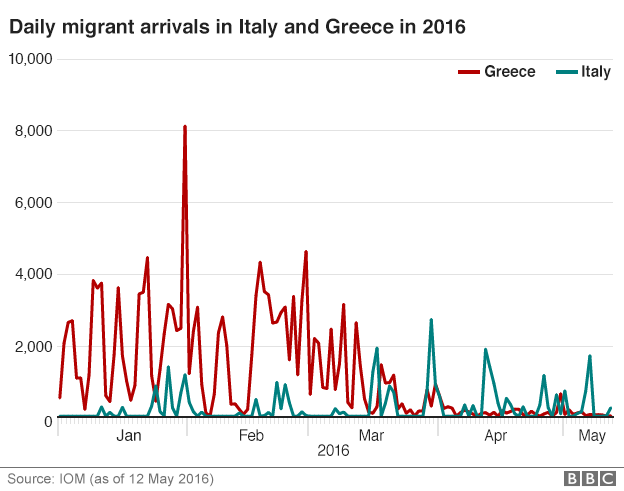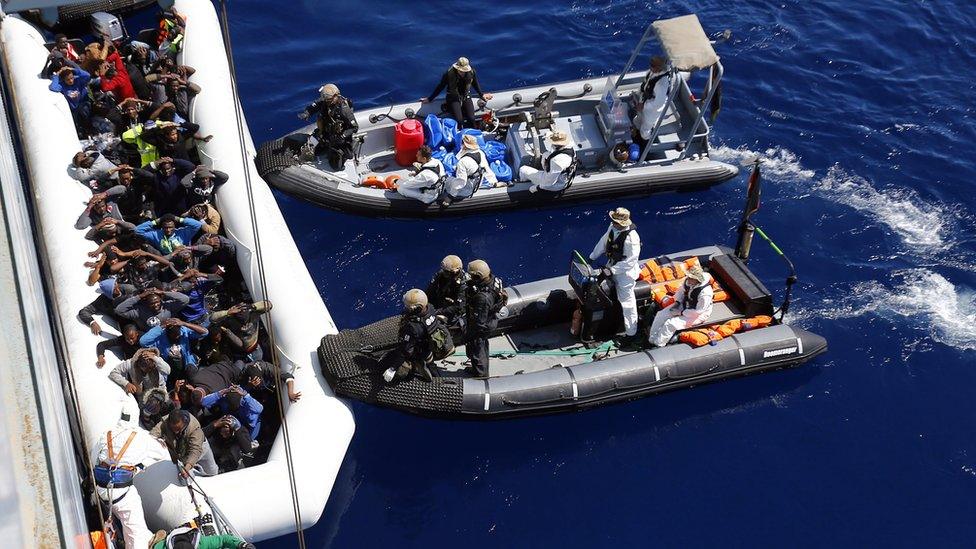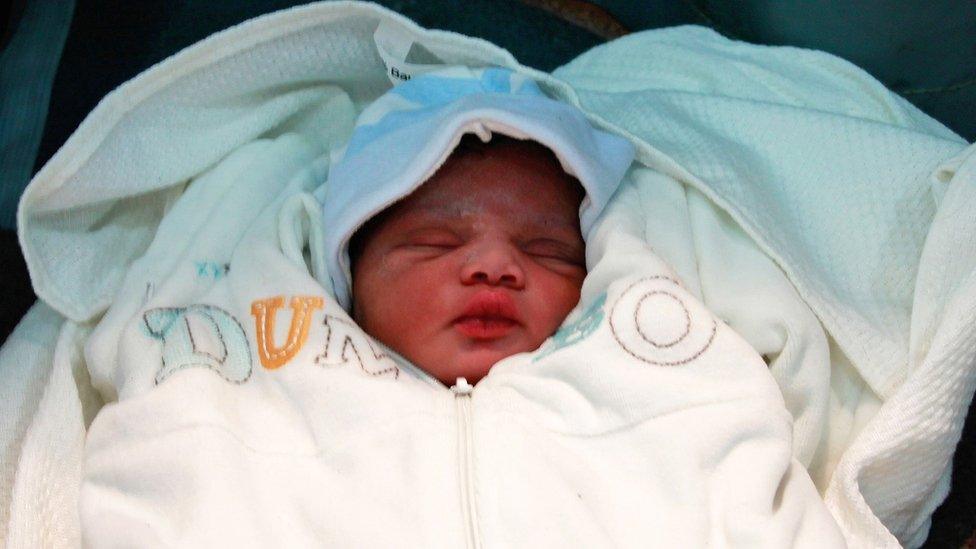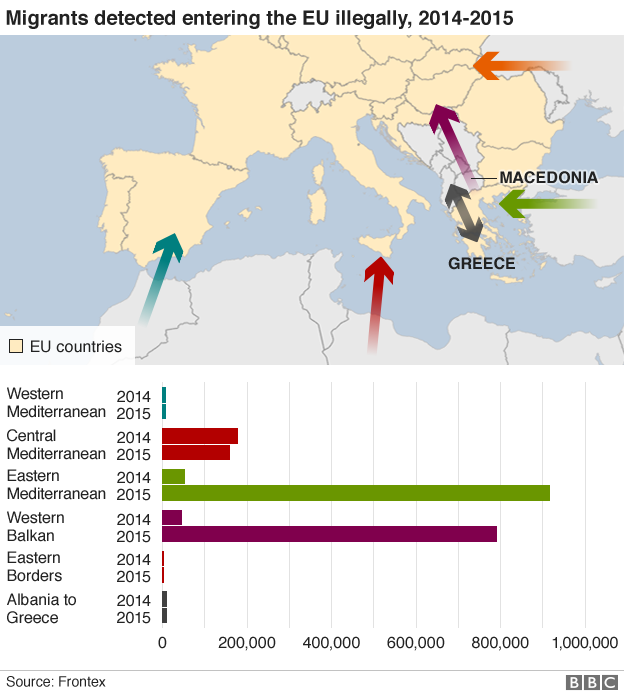EU mission 'failing' to disrupt people-smuggling from Libya
- Published
The BBC's Christian Fraser speaks to a rescued Gambian migrant
The EU naval mission to tackle people smuggling in the central Mediterranean is failing to achieve its aims, a British parliamentary committee says.
In a report,, external the House of Lords EU Committee says Operation Sophia does not "in any meaningful way" disrupt smugglers' boats.
The destruction of wooden boats has forced the smugglers to use rubber dinghies, putting migrants at even greater risk, the document says.
Operation Sophia began in June 2015.
At the time the conflicts in Syria and Iraq had begun fuelling an unprecedented flow of refugees from the Middle East to Europe.
But the majority leaving Libya - itself wracked by fighting and human rights abuses - are migrants from sub-Saharan Africa.

EU migration: Crisis in seven charts
Europe migrant crisis - Special Report
The operation was launched in the wake of a series of disasters in which hundreds of migrants drowned while trying to cross from Libya to Italy.
The numbers risking their lives on the Libya-Italy route have been increasing, while the numbers reaching the Greek islands from Turkey have dropped.
An EU agreement with Turkey, external to intercept migrant boats in the Aegean Sea and send many migrants back took effect in March.
Last year the EU authorised its vessels to board, search, seize and divert vessels suspected of being used for people smuggling in the central Mediterranean.

Operation Sophia

German and Finnish forces are seen here helping rescued migrants to board a German warship
Almost 14,000 migrants rescued since operation began (22 June 2015)
114 people smugglers' boats seized
69 suspected smugglers and traffickers arrested by Italian authorities
Operation has five warships - Italian flagship Cavour, two German, one UK, one Spanish
And seven aircraft (three helicopters, four planes)
Source: EUNavFor Med - Operation Sophia, 13 May 2016

'Responding to symptoms'
The House of Lords report states that "the arrests made to date have been of low-level targets, while the destruction of vessels has simply caused the smugglers to shift from using wooden boats to rubber dinghies, which are even more unsafe".
It says that there are also "significant limits to the intelligence that can be collected about onshore smuggling networks from the high seas".
"There is therefore little prospect of Operation Sophia overturning the business model of people smuggling," the document concludes.
So far this year, 187,920 refugees and migrants have arrived in Europe by sea - 155,765 in Greece and 31,252 in Italy, the UN refugee agency UNHCR said on Friday.
They included about 1,000 rescued off the Italian coast on Thursday and taken to Sicily. About 500 of them - aboard two fishing boats - had left Egypt, and the others had sailed from Libya.
The number of dead or missing in the Mediterranean in January-May 2016 reached 1,357, the International Organization for Migration (IOM) said.

The EU operation is named Sophia after a baby born to a rescued Somali woman on a German frigate in August 2015
The House of Lords report complains that the EU mission is still operating out in international waters, and not - as originally intended - in Libyan waters.
The weakness of the Libyan state is seen by the report's authors as another key factor.
They say the absence of a formal invitation from Libya is preventing European Nato members from launching a military intervention, aimed at tackling the threat posed to Libya - and the wider region - by so-called Islamic State.
"However valuable as a search and rescue mission, Operation Sophia does not, and, we argue, cannot deliver its mandate. It responds to symptoms, not causes."
The report also urges the EU to urgently develop a strategy aimed at tackling the root causes of mass migration.
An EU spokesperson called the report "an informative contribution", adding that the EU would take account of its recommendations.
The spokesperson acknowledged the need to operate in Libyan waters - contingent on getting an invitation from Libyan officials.
Operation Sophia "served as a disincentive for traffickers" and improved the EU's knowledge of their criminal networks, the spokesperson said.
The mission is named after a baby born on an EU ship that rescued her mother off the coast of Libya in August 2015.
A note on terminology: The BBC uses the term migrant to refer to all people on the move who have yet to complete the legal process of claiming asylum. This group includes people fleeing war-torn countries such as Syria, who are likely to be granted refugee status, as well as people who are seeking jobs and better lives, who governments are likely to rule are economic migrants.
